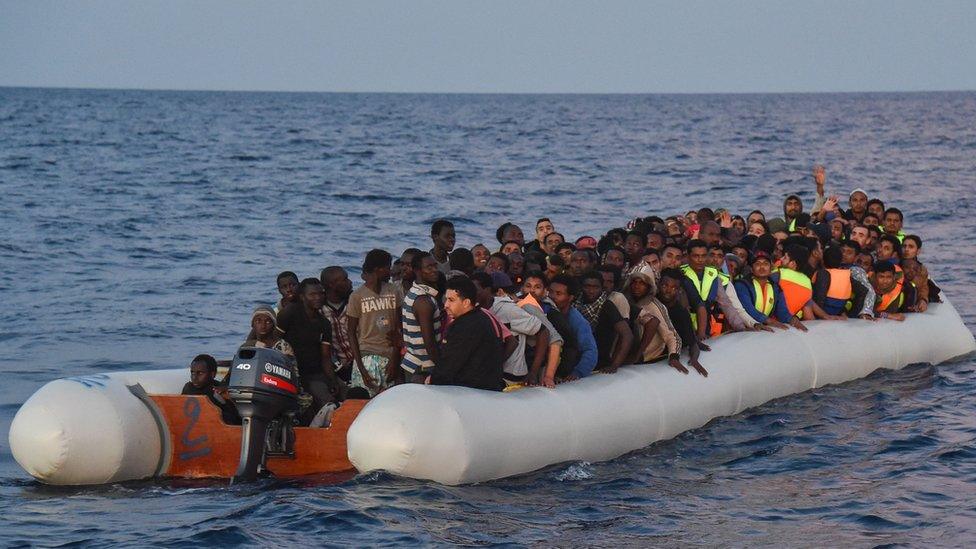Rescue ship brings 606 migrants to Italy
- Published
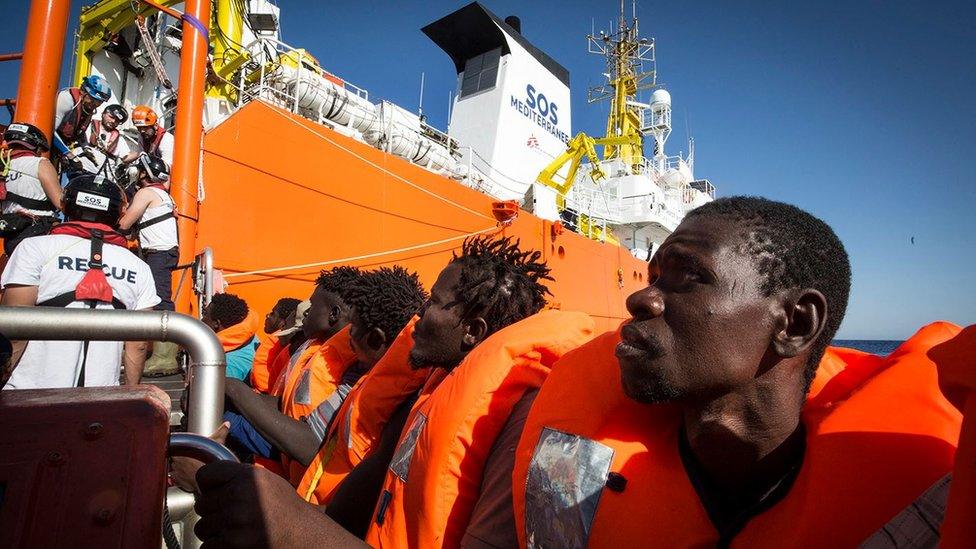
Migrants are often crowded on to unseaworthy boats, such as rubber dinghies
A rescue ship has docked in Sicily with 606 migrants picked up in less than two days off the Libyan coast.
They are from about 20 countries in Africa and the Middle East. Aid group SOS Méditerranée says they include 241 children and 11 pregnant women.
Many of the women from sub-Saharan Africa said they had suffered sexual abuse. Some of the migrants are malnourished, the group reports, external.
Fifty had fled to Libya from war-torn Syria. But violence also plagues Libya.
The flow of irregular migrants to southern Europe via the Mediterranean is well below the 2016 level. But Italy is struggling to cope, as most migrants now take the perilous central Mediterranean route from Libya.
The Syrians taken aboard the Aquarius rescue ship include entire families and two women in the ninth month of pregnancy.
The ship is now in Palermo, where the migrants face a long screening process, to determine who among them can legitimately claim asylum.
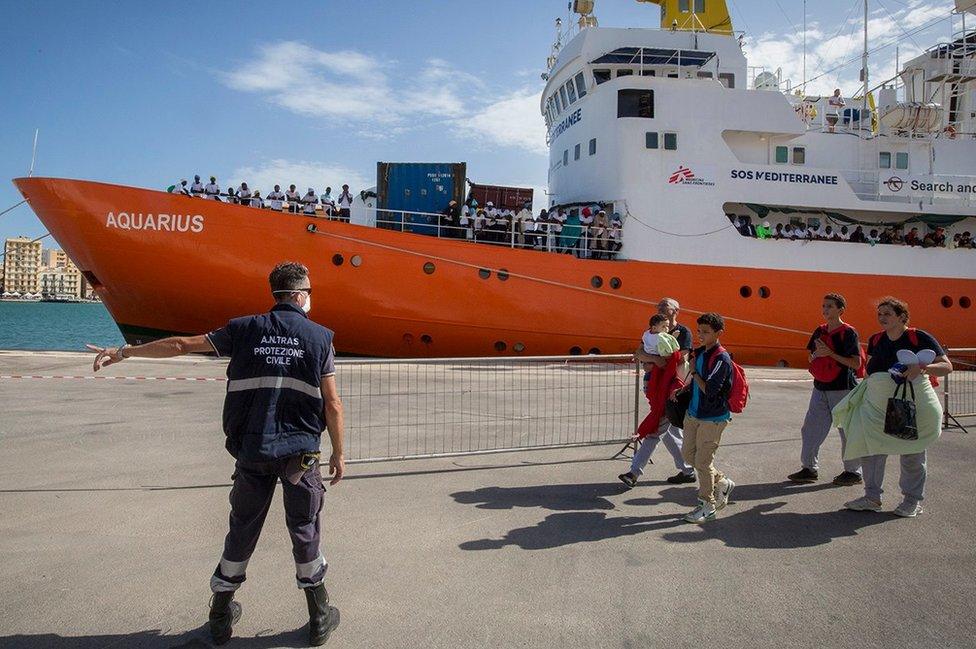
Aquarius is among several NGO rescue ships patrolling off the Libyan coast
The migrants' countries of origin include Egypt, Sudan, Eritrea, Mali, Ivory Coast, Guinea Bissau, Nigeria, Ghana, The Gambia and Yemen.
SOS Méditerranée said the proportion of children rescued - about four in every 10 migrants - was the highest to date.
"They are fleeing the chaos, and general climate of insecurity and violence in Libya," said the aid group's chairman, Francis Vallat.
The UN refugee agency UNHCR says, external the total of migrants arriving by sea this year is 142,180, of whom 107,982 reached Italy.
The figure for Greece, previously the main entry point to the EU, is 20,931.
Non-profit aid groups - NGOs - complain that EU governments are not properly resourcing the rescue effort, as people-smuggling gangs exploit migrants in Libya. Sexual abuse of female migrants and other assaults are reported to be rife there.
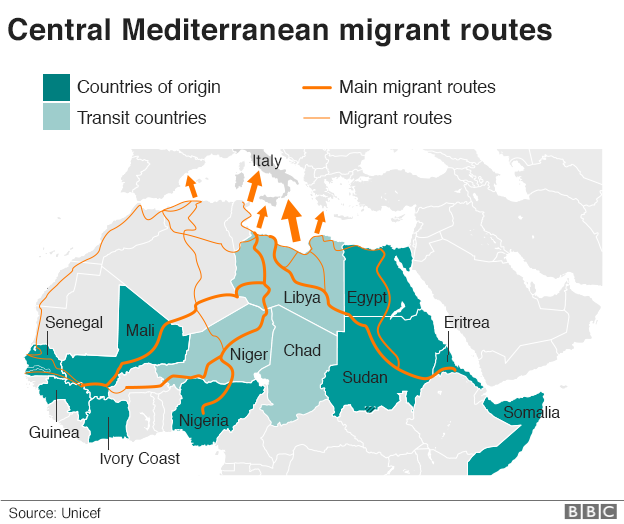
A note on terminology: The BBC uses the term migrant to refer to all people on the move who have yet to complete the legal process of claiming asylum. This group includes people fleeing war-torn countries such as Syria, who are likely to be granted refugee status, as well as people who are seeking jobs and better lives, who governments are likely to rule are economic migrants.
- Published16 September 2017
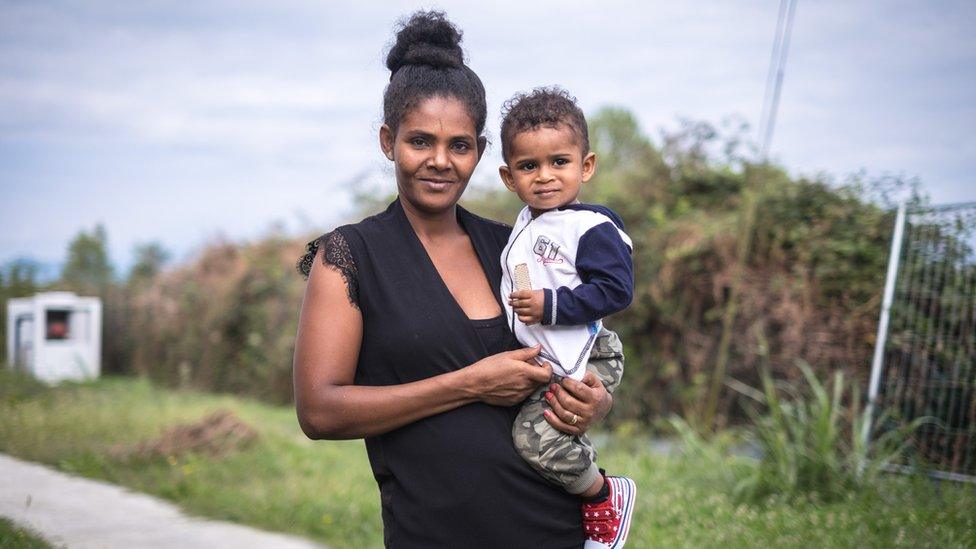
- Published21 September 2017
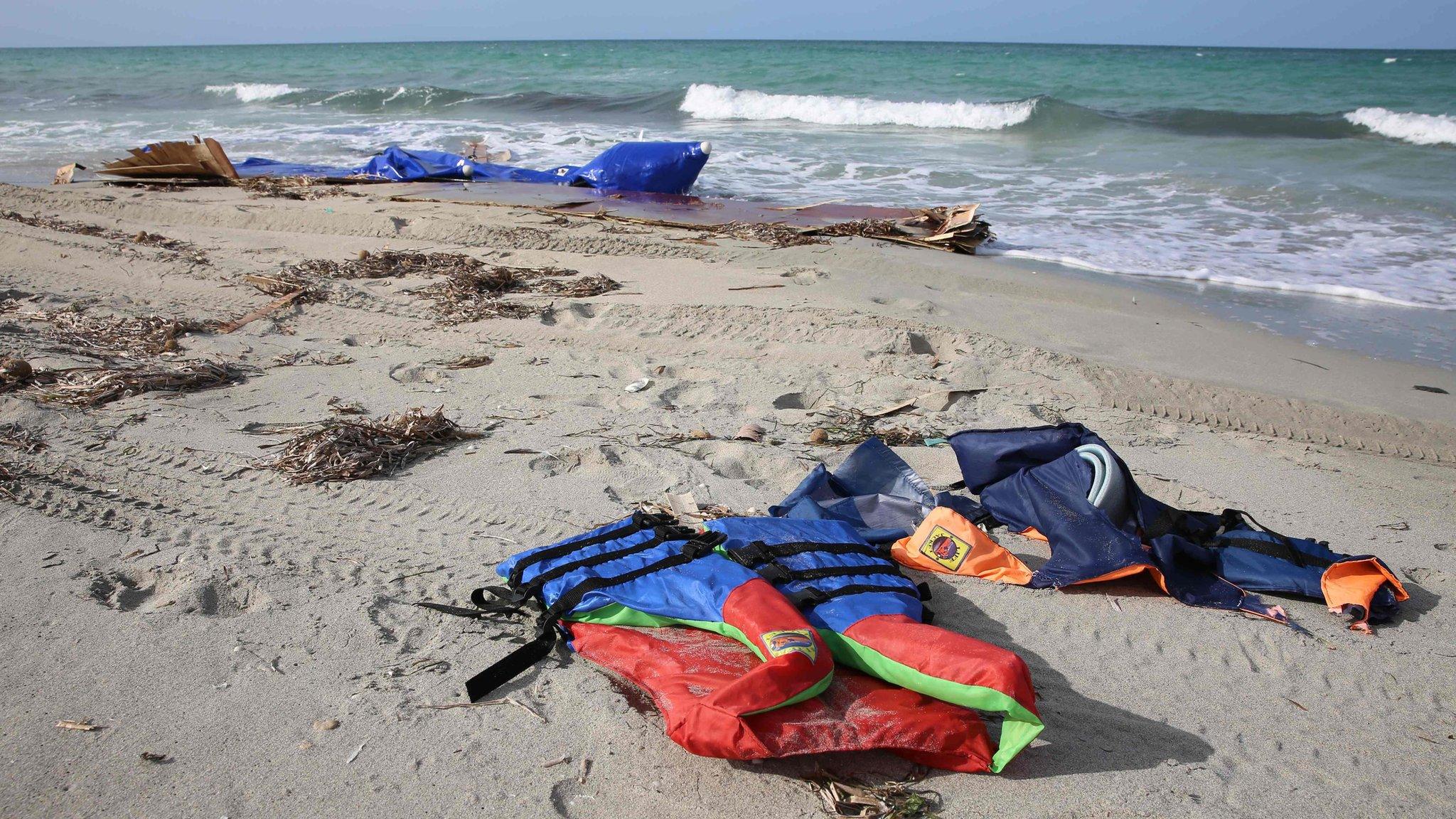
- Published17 July 2017
